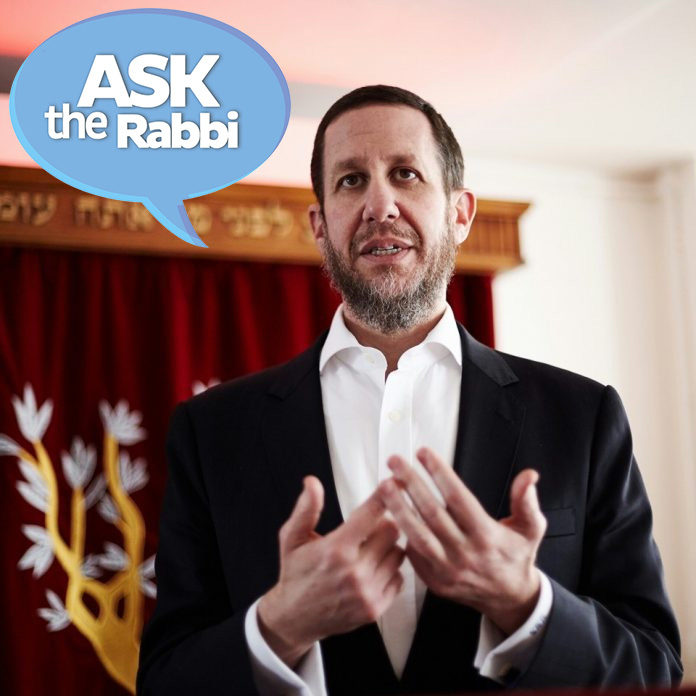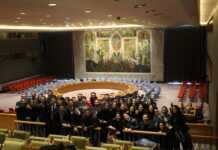
Dear Rabbi
Each year someone asks you for some guidance towards a New Year’s resolution. So I am going to jump in early (unless he already has) and ask you to share an idea that I and others might be able to undertake. Of course, we all make a general commitment to grow and be better people but perhaps something specific for the coming year.
Kelly
Dear Kelly
Rosh Hashanah is referred to as our Day of Judgement. But inasmuch as it is a day in which we are all being judged, there is a lesson therein for us all – in the way that we might judge as well.
There are two directives in Ethics of the Fathers in respect to judging. One states, “don’t judge another person until you are standing in their shoes.” The other states simply, “always be sure to judge everyone favourably.” The two directives are conveying distinct messages that essentially amount to the same thing.
Imagine being curt or rude to someone who was acting out of character, only to then later find out that they just lost a loved one. Imagine the guilt you would feel of knowing you could have uplifted this person in a time of need but chose to dismiss them instead.
Every day we have interactions with people who are going through some kind of a challenge. They may be experiencing some level of pain, suffering or loss. But usually we are so caught up in our own lives that we don’t ever stop to notice. Maybe a co-worker is going through a relationship problem, a friend is dealing with anxiety or depression a family member is struggling financially, an elderly relative is having health issues, or a stranger just lost a loved one. Every day we come across people that are in need and every day we have an opportunity to help someone. Rather than judging, we should always treat others the way we would want to be treated, because one day we might find ourselves in a situation that requires the understanding and kindness of another; maybe even a total stranger. So be kind to others, be the kind of person you wish you could have had if you were in their position, because each person is fighting their own battle. And you really never know what someone is going through.
A lovely little boy was holding two apples with both hands. His mother came in and softly asked her young son, with a smile: “My sweetie could you give Mom one of your two delicious apples?” The little boy looked up to his Mom for some seconds, then he quickly took a bite out of one apple and then proceeded to do the same with the other. The mother tried hard not to show her extreme disappointment. Then the little boy handed one of his bitten apples to his Mom and said: “Mommy here you are. This is the sweeter one.”
No matter who you are, how experienced you are, and how knowledgeable you think you are, always delay judgement. Give others the privilege to explain themselves. What you see may not be the reality. Never conclude for others.
If we could all get that balance right in our current chaotic world, it would look so much of a better place.
But it doesn’t end with judging others. The great Chassidic master, Rabbi Nachman of Breslav taught that our Sages were not just talking about our judgement of others. Our sages were also referring to when we judge ourselves. We need to stop judging ourselves incapable of change. Incapable of goodness. Incapable of healing. Incapable of spiritual growth. Incapable of making peace with those we have fallen out with. Because it isn’t true. The truth is that we can do whatever we set our minds to do.
A famous author once wrote: When we moved into our house, the front yard was covered in what looked like rocks strewn together haphazardly. I worked my way through cleaning this garden and when I reached the end I found a tiny little plant that I could not immediately identify. I let it be and as the weeks passed this mystery plant appeared to be a Sunflower. It was spindly looking with a tall skinny stalk and only one head on it. I decided to baby it along and weed around it. As I pulled rocks from the area to get to the weeds, I noticed something unusual. The Sunflower had not started where I saw the stalk begin. It actually had begun under a big rock and grown under and around it to reach the sun. That’s when I realized that if a tiny little Sunflower didn’t let a big rock stand in its way of developing, we too have the capability of doing the same. Once our environment begins to see that we believe in ourselves, we can create beauty and find resilience just like that sunflower. The world is not as big as it seems and you are not as small as you think. So go out there and achieve greatness.
Wishing you and all readers a Shana Tova uMetuka.









